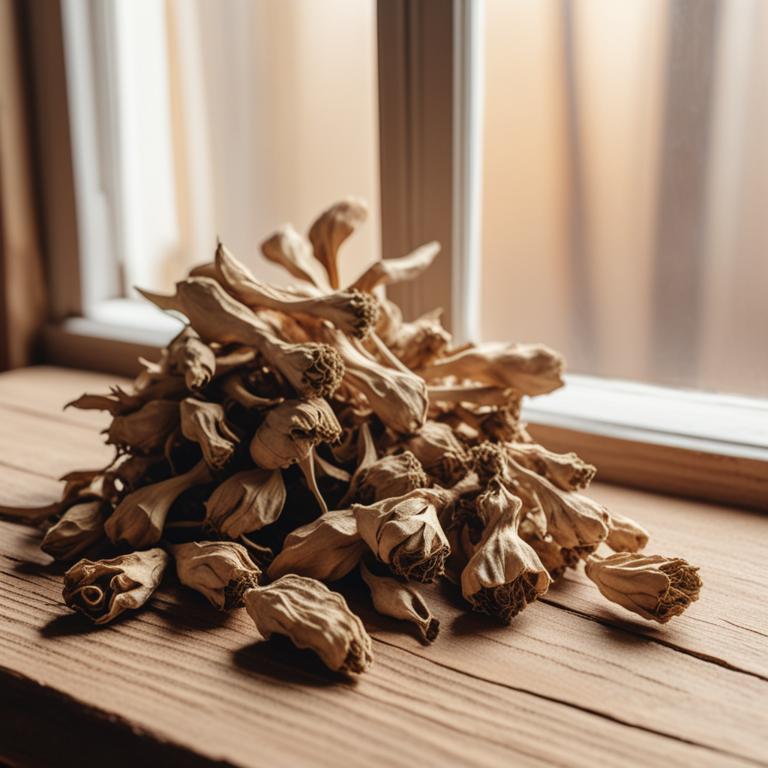Updated: Dec 1, 2024
Causes of Joint Pain and Natural Relief through Medicinal Herbs and Preparations

Joint pain can make everyday activities feel like a struggle.
It's a common problem where the joints, which connect bones, become sore and inflamed. This can limit your movement, making it hard to do things you love, like walking or even getting out of bed. Joint pain can be caused by injury, overuse, or conditions like arthritis. It can also be triggered by factors like obesity, poor posture, and even certain medications. To find relief, many people turn to herbal remedies. Certain plants have been found to have anti-inflammatory properties, which can help reduce joint pain and swelling.
Turmeric, for example, contains a compound called curcumin, which has been shown to have potent anti-inflammatory effects. Ginger is another herb that has been used for centuries to reduce pain and inflammation. It can be consumed as a tea, or added to meals for extra flavor and benefits. Other herbs like boswellia and willow bark have also been used to alleviate joint pain. These herbs can be consumed as teas, capsules, or even added to bathwater for a relaxing soak. Many herbal remedies for joint pain are available in local health food stores or online.
While these remedies can be helpful, it's essential to talk to a healthcare professional before trying any new treatment, especially if you're already taking medications or have underlying health conditions.
Table of Contents
- What causes joint pain to occur?
- What benefits can be achieved by using herbs to relieve joint pain?
- What are the primary medicinal herbs associated with joint pain relief?
- What herbal supplements are used most frequently to alleviate joint pain?
- What herbs should be avoided by people who suffer from joint pain?
- FAQ
What causes joint pain to occur?
The main causes of joint pain are various and can be complex.
One of the most common causes is Osteoarthritis (OA), a condition where the cartilage in the joints wears down, leading to bone-on-bone contact and pain. This can be due to aging, obesity, or repetitive stress on the joints. Another cause is Rheumatoid Arthritis (RA), an autoimmune disease that causes the immune system to attack the lining of the joints, leading to inflammation and pain.
Psoriatic Arthritis (PSA) is similar to RA, but it's linked to the skin condition psoriasis. It causes inflammation and pain in the joints, and can also cause skin symptoms like redness and scaling. Gout is another cause of joint pain, caused by a buildup of uric acid in the joints, which can form sharp crystals that cause pain and inflammation. Tendinitis is a condition where the tendons, which connect muscles to bones, become inflamed and painful, often due to overuse or injury.
Lastly, Bursitis is a condition where the fluid-filled sacs, called bursae, that cushion the joints become inflamed and painful, often due to injury or repetitive motion.
What benefits can be achieved by using herbs to relieve joint pain?
Using herbs for joint pain can be a great way to find some relief.
These natural remedies have anti-inflammatory properties, which help reduce swelling and pain in the joints. They can also improve blood flow, bringing in oxygen and nutrients that help heal damaged tissues.
This can lead to stronger, more flexible joints that move easily without stiffness or pain. Some herbs can even help reduce the production of pain-causing chemicals in the body, providing long-term relief from joint pain.
Additionally, herbs are often gentle on the body and can be used in conjunction with other treatments, such as physical therapy or medication, to create a comprehensive treatment plan.
What are the primary medicinal herbs associated with joint pain relief?
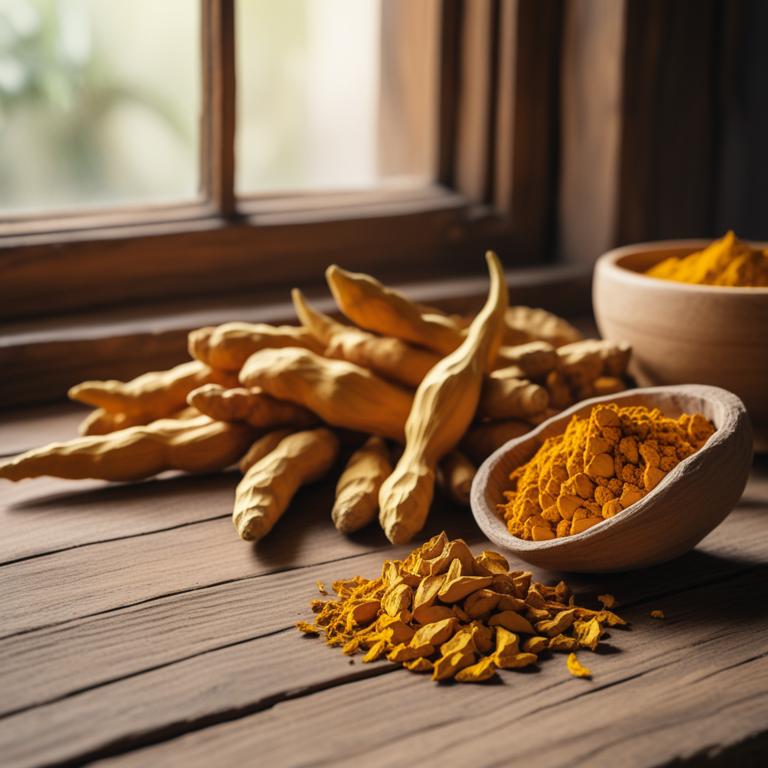
Herbs can be a great help for people with joint pain.
Let's talk about some of the most effective ones. Curcuma longa, or turmeric, contains a powerful compound called curcumin, which is a strong anti-inflammatory. When we have joint pain, it's usually because of inflammation in the joints, and curcumin can help reduce that. Another herb that's good for joint pain is Zingiber officinale, or ginger. Ginger has anti-inflammatory properties that can help reduce pain and stiffness in the joints. It also has a warming effect, which can help relax the muscles around the joints. Capsicum annuum, or cayenne pepper, is another herb that can help with joint pain.
It contains a compound called capsaicin, which is a natural pain reliever. When we apply capsaicin to the skin, it can reduce pain and inflammation in the joints. Boswellia serrata, or frankincense, is an herb that's been used for centuries to help with joint pain. It contains compounds that can reduce inflammation and pain in the joints, and also help with stiffness and swelling. Lastly, Salix alba, or willow bark, contains a compound called salicin, which is similar to aspirin. Salicin can help reduce pain and inflammation in the joints, making it a great natural alternative to traditional pain medications. All these herbs can be used in different ways, such as tea, capsules, or topical creams. They can be combined with other herbs to create a more effective treatment for joint pain.
It's always a good idea to talk to a doctor before trying any new treatment, especially if you're already taking medication.
What herbal supplements are used most frequently to alleviate joint pain?

Herbal preparations can be a great way to manage joint pain.
One option is a tincture, which is a concentrated liquid made from the active ingredients of a plant. Tinctures can be taken orally and are absorbed quickly into the bloodstream, providing fast relief from pain and inflammation. Another option is a decoction, which is made by boiling the roots and stems of a plant in water. This method is often used for plants with hard, woody parts that wouldn't dissolve in water. Decoctions can be taken as a tea or used as a bath to help reduce joint pain and stiffness. A salve is a topical preparation made from the oil of a plant.
When applied to the skin, the oil can help reduce inflammation and pain in the joints. Salves can be especially helpful for people with arthritis or other conditions that cause pain and stiffness in the hands and feet. Herbal creams can also be effective in reducing joint pain. These creams are made from the oil of a plant and are often combined with other ingredients like menthol or capsaicin. When applied to the skin, these creams can help reduce inflammation and pain, and even help to reduce stiffness. Finally, infusions are a type of herbal tea made by steeping the leaves of a plant in hot water.
Infusions can be a gentle and soothing way to reduce joint pain and inflammation, and can be especially helpful for people who are sensitive to other herbal preparations.
Additional Resources:
What herbs should be avoided by people who suffer from joint pain?
If you're experiencing joint pain, it's a good idea to steer clear of certain herbs that might make things worse.
Glycyrrhiza glabra, commonly known as licorice root, contains a compound that can cause your body to hold onto water and make you retain sodium, which can lead to swelling in your joints. This can be particularly problematic if you already have joint pain, as the swelling can put additional stress on your joints and make the pain worse. Ginkgo biloba is another herb to approach with caution. While it's often used to improve blood flow and reduce inflammation, it can also increase the risk of bleeding. If you're already experiencing joint pain, you don't want to add bleeding to the mix, as this can make it harder for your body to heal and might even lead to complications like ulcers or internal bleeding. Ephedra sinica, also known as ma huang, is a decongestant herb that can increase your heart rate and blood pressure.
If you have joint pain, the last thing you need is increased blood pressure, as this can put additional strain on your joints and make the pain worse. Additionally, ephedra has been linked to heart problems and strokes, so it's best to avoid it altogether. Pausinystalia johimbe, also known as yohimbe, is a stimulant herb that can increase your heart rate and blood pressure, similar to ephedra. It can also cause anxiety and insomnia, which can make joint pain even more uncomfortable. If you're already struggling with joint pain, the last thing you need is added stress and anxiety. Aristolochia clematitis, also known as snake root, has been linked to kidney damage and cancer. If you're experiencing joint pain, you want to focus on healing your joints, not putting your kidneys at risk.
This herb can also cause stomach problems and interact with other medications, making it a herb to avoid altogether.
FAQ
Are there any specific herbs that can prevent joint pain?
Turmeric contains a compound called curcumin, which has anti-inflammatory properties that can help reduce joint pain.
Ginger also has anti-inflammatory effects and has been used for centuries to soothe sore joints.
Additionally, willow bark contains salicin, a compound similar to aspirin, which can help alleviate joint pain and inflammation.
Is it safe to use herbal remedies for joint pain during pregnancy?
When pregnant, it's essential to be cautious with herbal remedies.
Some herbs, like willow bark and ginger, are sometimes used for joint pain, but others, like foxglove and pennyroyal, can be toxic to the developing baby.
Always check the ingredients and potential risks before trying any herbal remedy, and choose options that have been studied for safety.
Are there any herbs that can reduce the frequency of joint pain?
Turmeric and ginger have been used for centuries to help with joint pain.
Turmeric contains a compound called curcumin, which has anti-inflammatory properties that can reduce pain and swelling. Ginger has similar effects, and eating it or drinking ginger tea may help alleviate joint pain and stiffness.
Some people find these herbs help them move more easily and feel more comfortable.
Related Articles

Natural Stiff Neck Remedies: Causes and Herbal Preparations
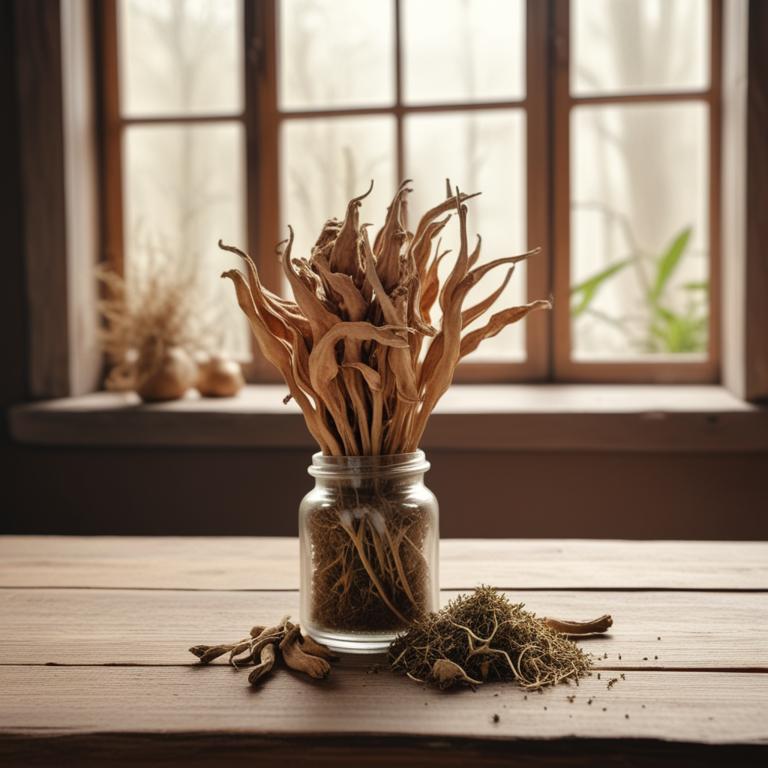
Tendinitis Relief: Exploring Medicinal Herbs and Their Preparations
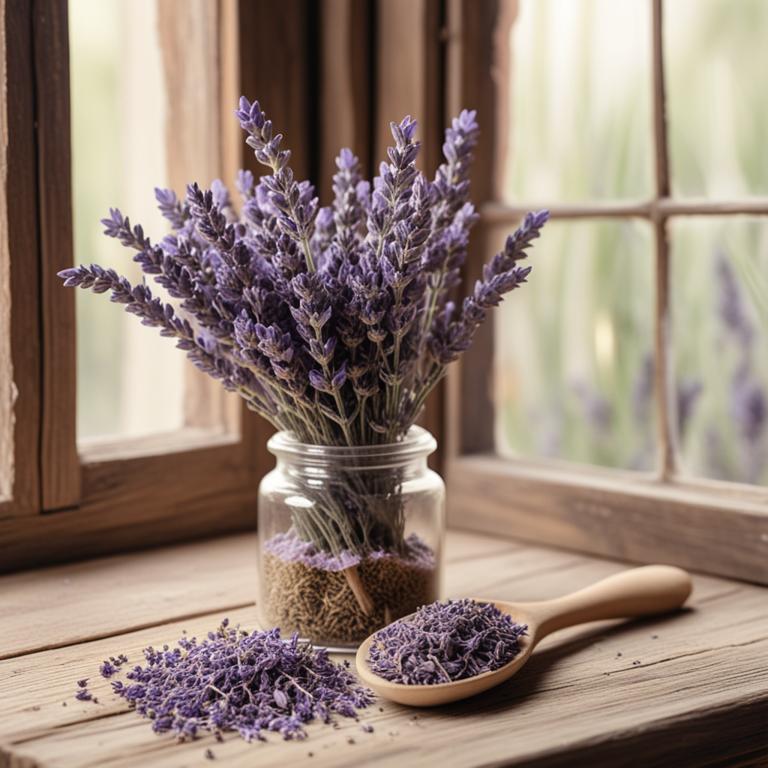
Jaw Clenching and Bruxism: Causes, Medicinal Herbs, and Herbal Preparations

Causes of Joint Pain and Natural Relief through Medicinal Herbs and Preparations
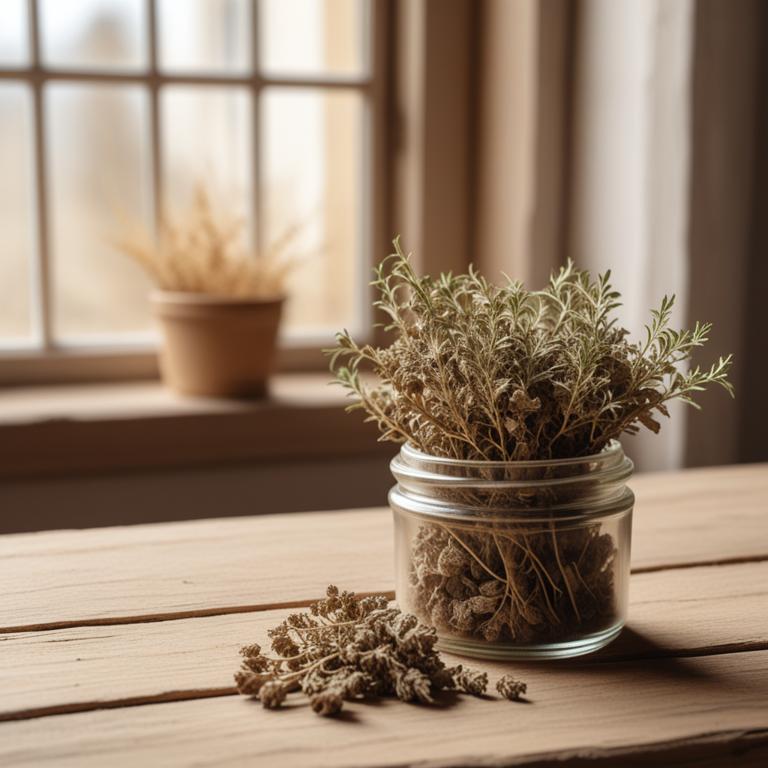
The Causes and Effects of Rheumatoid Arthritis and Herbal Preparations






